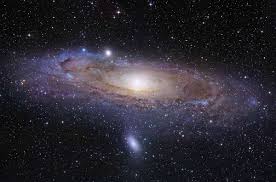astronomy
推荐文章

n. 天文学
n.
天文学;
双语释义
n.(名词)[U]天文学 the scientific study of the sun, star, etc.
英英释义
astronomy[ ə'strɔnəmi ]
n.the branch of physics that studies celestial bodies and the universe as a whole
同义词:uranology
词组短语
radio astronomy n. 射电天文学
physics and astronomy物理学和天文学
national radio astronomy observatory国立射电天文台
双语例句
用作名词(n.)
Physics and astronomy are cognate sciences.
物理学和天文学是相关联的科学。
Astronomy, as distinct from astrology, is an exact science.
天文学是一门严谨的科学,与占星术完全不同。
Astronomy is the scientific study of the sun, moon, and stars and other heaven bodies.
天文学是研究太阳、月亮、星星和其他天体的科学。
We're at cross-purposes: I'm talking about astronomy, you're talking about astrology.
我们彼此误解了: 我谈的是天文学,你谈的是占星术。
权威例句
Eco Astronomy & AstrobiologyUV astronomy throughout the ages: a historical perspective
Stochastic Problems in Physics and Astronomy
The promises of gravitational-wave astronomy
Preface - Annual Review of Astronomy and Astrophysics, 46(1):
Stochastic Problems In Physics and Astronomy,” Rev. Mod. Phys., 15, 2-89
On the Introduction of the Term 'Giant' into Stellar Astronomy
SArdinia Roach2-based Digital Architecture for Radio Astronomy (SARDARA)
MoonBEAM: A Beyond Earth-Orbit Gamma-Ray Burst Detector for Gravitational-Wave Astronomy
Astronomy and Astrophysics, Supplement Series (A&AS) published data papers, either observational or theoretical, as well as extensiv...
astronomy
astronomy: [13] Astronomy comes via Old French and Latin from Greek astronomíā, a derivative of the verb astronomein, literally ‘watch the stars’. Greek ástron and astér ‘star’ (whence English astral [17] and asterisk [17]) came ultimately from the Indo-European base *ster-, which also produced Latin stella ‘star’, German stern ‘star’, and English star.The second element of the compound, which came from the verb némein, meant originally ‘arrange, distribute’. At first, no distinction was made between astronomy and astrology. Indeed, in Latin astrologia was the standard term for the study of the stars until Seneca introduced the Greek term astronomia. When the two terms first coexisted in English (astrology entered the language about a century later than astronomy) they were used interchangeably, and in fact when a distinction first began to be recognized between the two it was the opposite of that now accepted: astrology meant simply ‘observation’, whereas astronomy signified ‘divination’.The current assignment of sense was not fully established until the 17th century.=> asterisk, astral, star
astronomy (n.)
c. 1200, from Old French astrenomie, from Latin astronomia, from Greek astronomia, literally "star arrangement," from astron "star" (see astro-) + nomos "arranging, regulating," related to nemein "to deal out" (see numismatic). Used earlier than astrology and originally including it.
Þer wes moni god clarc to lokien in þan leofte, to lokien i þan steorren nehʒe and feorren. þe craft is ihate Astronomie. [Layamon, "The Brut," c. 1200]
1. In none of these respects does optical astronomy have any advantage over radio astronomy.
在所有这些指标上,射电天文并不比光学天文逊色。
-- 来源 -- 英汉 - 辞典例句
2. X-ray astronomy has made impressive progress.
X射线天文学已取得了引人注目的进展。
-- 来源 -- 英汉 - 辞典例句
3. His contributions have run through virtually all of modern astronomy.
他的贡献几乎遍及现代天文学的所有领域。
-- 来源 -- 英汉 - 辞典例句
4. Astronomy is no snap course.
天文学可不是一门容易读的课程。
-- 来源 -- 英汉 - 辞典例句
5. Mathematics and astronomy are cognate sciences.
数学和天文学是互相关联的科学。
-- 来源 -- 英汉 - 辞典例句
6. a formidable knowledge of astronomy
对天文学的深刻了解
-- 来源 -- 英汉 - 辞典例句
7. The renowned American satellite Uhuru exemplifies the capabilities of X-ray astronomy.
著名的美国“乌呼鲁”卫星充分显示了X射线天文学的威力。
-- 来源 -- 英汉 - 辞典例句
8. He is said to be the founder of modern astronomy.
他被誉为现代天文学的奠基人。
-- 来源 -- 英汉 - 辞典例句
9. Astronomy inherits from astrology.
天文学是由占星学演变而来的。
-- 来源 -- 英汉 - 辞典例句
10. Radio astronomy today is armed with the largest antennas in the world.
射电天文学拥有世界上最大的天线。
-- 来源 -- 英汉 - 辞典例句
